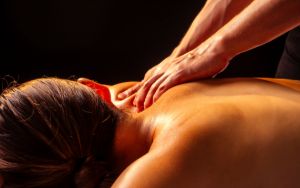Vertigo is not a life-threatening illness, but it can severely impair a person’s quality of life, owing to the nature of the condition. Patients will feel that the world around them is constantly spinning, especially when they get up after lying down or sudden head movements. Vertigo patients are at risk of falling and injuring themselves, especially if elderly, and care should be taken not to leave them alone. The loss of balance is usually accompanied by symptoms such as giddiness, nausea, sweating, headache, and other unpleasant sensations in general.
Causes of Vertigo
The causes of vertigo are many, the most common one being a fluid imbalance in the ear. This could be caused by ear infections, cold and sinusitis, lack of sleep, stress and anxiety, migraine attacks, impaired eyesight, side effects of medications or age-related issues. The causes of vertigo are mostly harmless, except for rare instances of brain tumour, epilepsy, or other serious illnesses.
Ayurvedic Treatments for Vertigo

According to Ayurveda, vertigo is caused by the Vata and Pitta doshas imbalance. Ayurveda always looks at diseases holistically, and the treatment methods are always multi-pronged. For vertigo, ancient science primarily recommends changes in one’s diet and sleep routine. Avoid fried, overly spicy, and sour foods and cold and fermented foods. People should avoid excess dairy and meat. A stomach detox and a light diet could do wonders, not just to the stomach but to your entire body, and improve health in general. Those affected by vertigo should also sleep early and at a fixed time every night and sleep for at least eight hours. The best medicine for vertigo is restoring the balance in the ear, for which sleep is crucial. When waking up, do not get up with a jerk, and instead, turn to your side gently and sit up for a while before standing.
Yoga and Panchakarma

Ayurveda is founded on the principle that one’s body, mind, and soul are intrinsically connected. For the same reason, most of the illnesses of the present-day world are caused or aggravated by stress and anxiety. Thus deep breathing and meditation are recommended for vertigo to ease and relax the mind. There are also specific yogasanas to restore the Vata-Pitta balance, though these should be done only under supervision as there is the danger of falling.
Besides these, Panchakarma therapies are also available for treating vertigo, which needs to be done under the recommendation of certified practitioners. The most common is Shirodhara, which involves pouring medicated herbal oils on one’s forehead, which will also calm and relax the body and mind. Massages for the head and neck and whole-body massages to improve blood circulation will also ease the symptoms of vertigo.
Herbal Medications

Among the common Ayurvedic herbal medications for the condition are: Triphala, Guduchi Kashaya, Ashwagandha, Amalaki, Haritaki, Yavasa, Sariva, Giloy, and Pitpapda. Brahmi, liquorice, Sankhupushpi, and Vacha are other remedies available from the garden, all of which have anti-inflammatory and stress-relieving properties. Medicate only under the advice of a practicing Ayurveda doctor.



